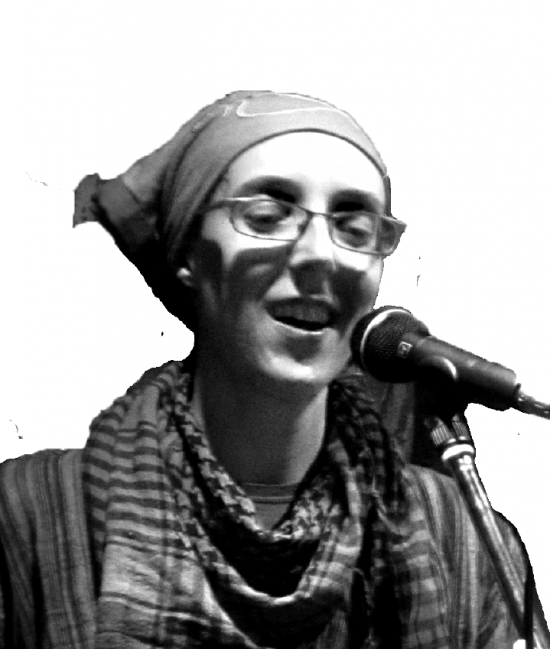I first heard the song ‘Bread and Roses’ sung by Edinburgh folksinger Eileen Penman. In 2009, we were collating a booklet of songs as part of the ‘Gude Cause’ project celebrating 100 years since the first women’s suffrage march in Edinburgh. ‘Bread and Roses’ was one of the songs she brought to the table, a song that strongly connects women’s movements with labour movements.
James Oppenheim wrote the poem ‘Bread and Roses’ in December 1911, possibly after reading a speech by Chicago suffragist and labour organiser Helen Todd. She, in turn, probably got the phrase from Rose Schneiderman, a New York-based suffragist and labour organiser.
Schneiderman is generally credited with coining the term ‘bread and roses’ in a speech she gave to an audience of New York women following a catastrophic factory fire that killed 146 workers, including 123 women and girls aged 14 – 23: ‘What the woman who labours wants is the right to live, not simply exist – the right to life as the rich woman has the right to life, and the sun and music and art. You have nothing that the humblest worker has not a right to have also. The worker must have bread, but she must have roses, too. Help, you women of privilege, give her the ballot to fight with.’
Oppenheim initially attributed the slogan ‘Bread for all, and Roses, too’ to the ‘women of the west’ and ‘Chicago Women Trade Unionists’ but, when the poem was printed in an anthology in 1915, he wrote: ‘In a parade of strikers of Lawrence, Mass., some young girls carried a banner inscribed, “We want Bread, and Roses too!”’
Because of this, the song and slogan have become (mistakenly) linked with the Massachusetts textile workers’ strike of 1912 which saw 20,000 people of 51 nationalities led out into the streets by migrant women workers.
Caroline Kohlsaat was first to write a tune for it, in 1917. It appeared in a Rebel Songbook in 1935 (incorrectly credited to Martha Coleman). In 1952, Kohlsaat’s tune was printed in the influential Sing Out! magazine, which boosted the song in folk-singing circles.
However it wasn’t until Mimi Fariña adapted a new tune in 1974 that the song really took off. Mimi and Joan Baez (her sister) sang the song together. Judy Collins released it on her 1976 Bread and Roses album, reaching a much wider audience. Other less-widely-sung tunes followed, including by Leon Rosselson, Utah Philips and John Denver.
In many of these versions, two lyrics have often been changed. A reference to ‘the rising of the race’ has been changed to ‘the rising of us all’. And the line ‘as we come marching, marching, we battle, too, for men; For they are women’s children and we mother them again’ has become ‘we battle too for men, for they are in the struggle, and together we will win’. Though some people still sing the mothering version, I much prefer the amendment.
I asked musicians and activist friends where they first heard the song. Many remember Judy Collins singing it. A friend in England remembers hearing Rosselson’s tune in the 1980s. Another in Australia remembers singing Fariña’s tune in the 1990s. Someone in Scotland remembers hearing it sung at the Scottish Trade Union Congress in the 1990s. Someone else remembers hearing the song at an International Women’s Day event as a child.
Many remember learning it in women’s and radical choirs in Scotland and England in the 1990s, and many younger friends first heard it in the 2014 film Pride, connecting retrospectively with a movement they hadn’t been part of. A friend in London remembers it rolling into queer choir repertoire following the release of Pride, finding connection between liberation movements.
Many more people are picking the song up again as it feels increasingly relevant, supporting striking nurses, teachers and rail workers, some of whom are driven to use food banks because their pay isn’t sufficient, and conditions are becoming less and less safe for them and for us all.
As we roll into another cost-of-living crisis brought about by deliberate governmental choices, we all need to keep a hold of the fact that we deserve not only bread, but roses too. We all need to be reminded that including the voices of all people – women, migrant workers and refugees, queer voices – needs to be part of our collective conversation and action.
When I sing it, I still hear ‘Bread and Roses’ in Eileen’s voice. And I hear the voices of all the people who have sung it before me. I see their faces and hear their voices. I feel their pain and I rejoice in their victories, even though we still need to sing the same song over a century later. ‘Our lives shall not be sweated from birth until life closes; Hearts starve as well as bodies; give us bread, but give us roses!


